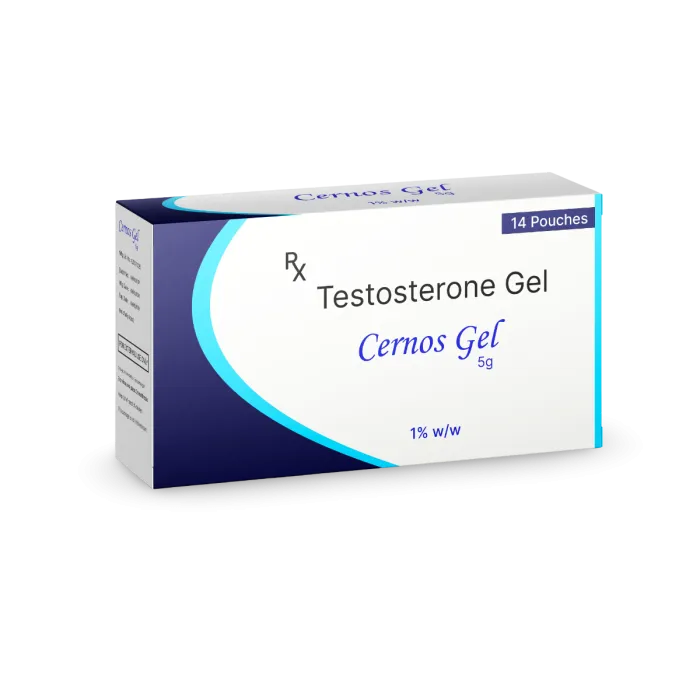Soy’s effects on Testosterone levels have been a topic of public interest in recent years.
The misconception that soy reduces Testosterone levels and causes infertility and ‘man boobs’ is well-known.
Research and scientific data can help determine if soy affects Testosterone levels in males.
The following article answers the question, ‘Does soy lower Testosterone?’.
Also, we will dispel soy myths and reveal the truth about Testosterone levels and soy eating.
Understanding Testosterone and Its Importance
Testosterone, the ‘male hormone,’ helps grow male reproductive tissues, bone density, muscle mass, and overall health.
It helps regulate fat distribution, sex drive, and red blood cell synthesis.
While Testosterone levels naturally fall with age, genetics, lifestyle, and food can affect them.
Sometimes low Testosterone levels can lead to Erectile Dysfunction.
Your doctor may prescribe Testosterone-boosting pills to improve your sexual health.
Save up to 90% on your medicine bills

Cernos Gel 1%w/w

Cernos 40 Mg Soft Gelatin Capsule

Sustanon 250 Injection

Carmel Organics Ashwagandha Extract Tablets
Does Soy Lower Testosterone
 Source: jarun001
Source: jarun001A widespread confusion about soy is its phytoestrogen content, isoflavones.
Plant-derived phytoestrogens resemble Estrogen, a hormone found in both men and women.
Concerns have been raised that these chemicals may mimic Estrogen and lower Testosterone in men.
Estrogen and Testosterone should be balanced to manage sex desires, erections, sperm production, and more.
A component like soy that boosts Estrogen would disrupt physiological functioning, leading to hormonal imbalance. This would lead to low Testosterone levels.
Some sources support this idea, but others disprove it.
However, scientific studies have demonstrated that phytoestrogens have more complex health effects than Estrogen mimicry.
To learn more about food items that decrease Testosterone, read Testosterone Troublemakers: Foods that Lower Testosterone.
Soy and Testosterone: A Closer Look at the Evidence
Many studies have examined the potential relationship between soy and Testosterone levels in men.
The majority of these studies, however, have produced results that suggest no significant impact on Testosterone levels.
A meta-analysis published in 2020 concluded that soy consumption had no adverse effects on Testosterone concentrations in men.
Also, a study found that soy protein supplementation had no noticeable influence on Testosterone levels in healthy young men.
These findings add weight to the growing consensus among experts that soy consumption does not harm Testosterone.
Soy Consumption and Health Benefits
 Source: shinijphoto
Source: shinijphotoIt’s important to note that soy consumption can offer numerous health benefits.
Soy is a rich source of high-quality protein, dietary fiber, vitamins, and minerals.
Studies have linked regular soy consumption to a reduced risk of cardiovascular diseases, potential anti-inflammatory properties, and improved bone health.
Individual Variability and Moderation
As with any dietary component, personal responses to soy can vary.
While most studies suggest that soy consumption does not decrease Testosterone levels, some men might be more sensitive to dietary changes.
Genetics, pre-existing hormonal conditions, and overall diet can influence how an individual responds to soy consumption.
Moderation is also a key consideration.
Consuming soy products as part of a balanced diet will likely have minimum impact on Testosterone levels.
However, excessively high consumption of any food item, including soy, can result in side effects.
Conclusion
The relationship between soy and Testosterone is complex, as is the answer to the question ‘Does soy lower testosterone?’.
Soy produces Estrogen-like effects in the body, but these effects usually do not affect Testosterone levels.
Soy phytoestrogens do not affect Testosterone levels like human Estrogen and are unlikely to affect them when taken in moderation.
Many scientific studies disprove the misconception that soy lowers Testosterone levels in males.
Soy is also a nutrient-rich food with many health benefits.
All diets must be moderate and take into account individual variations.
You can enjoy soy’s nutritional benefits without hormone concerns by being informed and separating fact from fiction.

Frequently Asked Questions
Does soy reduce Testosterone?
Scientific research suggests that soy consumption does not significantly reduce Testosterone levels in men. Numerous studies, including meta-analyses, have found that soy consumption has no adverse effects on Testosterone concentrations.
What are phytoestrogens, and how do they affect Testosterone levels?
Phytoestrogens are plant-derived compounds, specifically isoflavones found in soy, that structurally resemble Estrogen. Phytoestrogens act as both weak and anti-estrogens, depending on the hormonal context. Their effects are complex and much less potent than natural estrogens. Thus, they are unlikely to cause a substantial decrease in Testosterone levels.
Can soy protein supplementation impact Testosterone levels?
No, a study found that soy protein supplementation over 12 weeks had no noticeable impact on Testosterone levels in healthy young men. This study adds to the growing consensus that soy consumption, even supplementing, does not negatively affect Testosterone.
What health benefits are associated with consuming soy products?
Soy is a valuable source of high-quality protein, dietary fiber, vitamins, and minerals. Regular soy consumption has been linked to reduced risks of cardiovascular diseases, improved bone health, and potential anti-inflammatory properties. Including moderate amounts of soy in a balanced diet can contribute to overall health.
Could individual variability affect the relationship between soy and Testosterone levels?
Individual responses to dietary changes, including soy consumption, can vary. Genetics, pre-existing hormonal conditions, and overall diet can influence how an individual responds to soy. Moderation is important, as excessive food consumption, including soy, could disrupt hormonal balance.
Cheap Medicine Shop only refers to credible, authoritative sources for our content. If you’re curious about how we ensure the integrity of our content, we encourage you to read our Content Information Policy.














